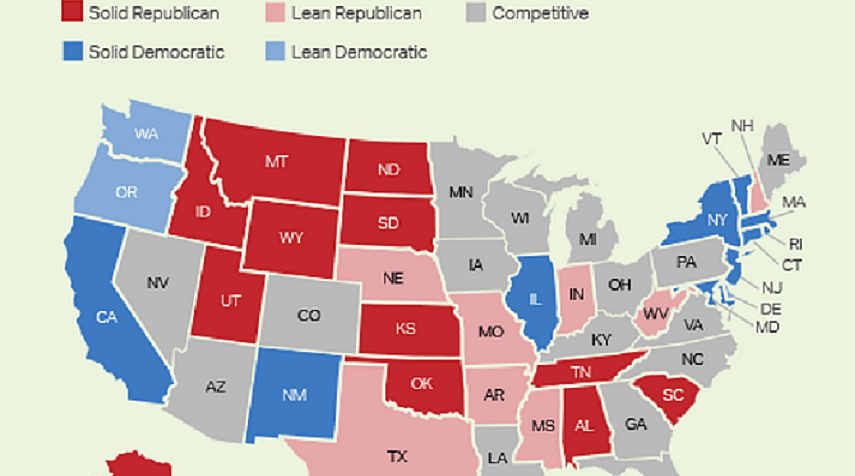Republican Party gains in popularity as states shift to GOP

BOSTON – Massachusetts remains one of the most liberal states in the U.S., but a Republican tide has pushed the nation closer to the GOP corner, a new survey of Americans' political leanings shows.
Gallup tracking surveys show 20 states were either solidly Republican or leaning that way last year compared with 14 either solidly or leaning Democratic, the first time the GOP had an edge since the polling began in 2008. In that presidential election year, the odds were stacked in favor of then-Sen. Barack Obama with 35 states in the Democratic column and just five counted as Republican.

